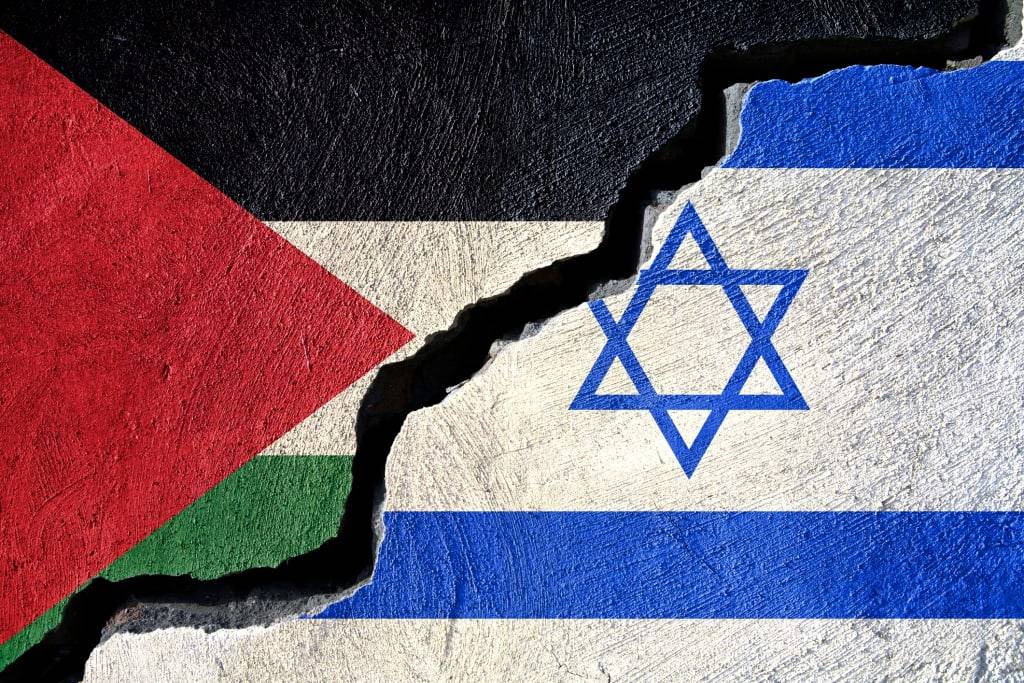The Israeli-Palestinian conflict has been ongoing for over 70 years, with roots stretching back to the early 20th century. In the aftermath of World War I, Britain took control of Palestine and allowed significant Jewish immigration to the region. This immigration led to tensions and violence between the incoming Jewish population and the local Arab population.
After World War II, Britain withdrew from Palestine, and the United Nations approved a partition plan to divide the territory into independent Jewish and Arab states. On May 14, 1948, the state of Israel was declared, which was immediately attacked by surrounding Arab nations. This launched the first Arab-Israeli war, which resulted in Israel capturing more territory than originally allotted to it under the UN partition plan. Hundreds of thousands of Palestinians fled or were expelled from their homes, becoming refugees in neighbouring countries.
In the 1967 Six-Day War, Israel captured the West Bank, Gaza Strip, Golan Heights and other territories, bringing over 1 million more Palestinian Arabs under Israeli occupation. Palestinian nationalist groups like the Palestine Liberation Organization (PLO) emerged, carrying out attacks against Israel. Israel responded with raids and targeted killings of militants.
After years of violence, secret negotiations in the 1990s between Israel and the PLO led to the Oslo Accords and the creation of the Palestinian Authority to govern parts of the West Bank and Gaza. However, disagreements over issues like Israeli settlements led to the breakdown of the 2000 Camp David summit between the parties. Violence erupted again in the Second Intifada from 2000-2005.
In 2006, the Islamist group Hamas won Palestinian elections, leading to a conflict with the PLO-affiliated Fatah party. Hamas seized control of Gaza in 2007, while Fatah retained the West Bank. Israel imposed a blockade on Gaza in response to Hamas rocket attacks. Israel and Hamas engaged in full-scale wars in Gaza in 2008-2009, 2012, and 2014, causing heavy damage and civilian casualties.
Benjamin Netanyahu, Israel's longest serving Prime Minister, has taken a hard line against concessions to the Palestinians during his tenure from the 1990s to today. Under the Trump administration, the U.S. strengthened its pro-Israel policies, recognizing Jerusalem as Israel's capital and Israeli sovereignty over the Golan Heights. The Trump peace plan was rejected by Palestinians.
Repeated attempts at negotiations have failed to produce a two-state solution or end the conflict. Israel claims it uses appropriate force to defend itself against Palestinian terrorism and rocket attacks. Palestinians view Israeli military actions and settlement expansion as unjustified aggression and collective punishment. Positions have hardened on both sides over decades of bloodshed.
Key Factors Preventing Peace:
- Clashing Historical Narratives - Both sides feel historic rights and attachment to the land, view the other's national claims as illegitimate.
- Violence and Retribution - Cycles of violent attacks and disproportionate responses fuel hatred and distrust between the peoples.
- Failed Negotiations - Major efforts at peace talks have collapsed over issues like borders, settlements, Jerusalem, refugees.
- Political Interests - Hard-line leaders gain domestic support by taking strong stances against the other side, undermining compromise.
- Hamas-Fatah Split - Palestinian body politic is divided between Islamists in Gaza and secular nationalists in West Bank.
- Occupation and Blockades - Israel's military control over Palestinian lives breeds resentment while Gazans suffer shortages under Israeli/Egyptian blockade.
- Terrorism - Palestinian militant attacks provoke crackdowns from Israeli security forces and support hardliners.
- Israeli Settlements - Continued expansion of Jewish settlements in occupied territory angers Palestinians, undermines territorial compromise.
- Palestinian Refugees - Unresolved status of Palestinians who fled in 1948 and 1967 remains emotional issue on both sides.
- Jerusalem - Sacred city at heart of historic claims and national identities makes negotiations over its status extremely difficult.
- Lack of Trust - With every failed agreement, both sides become more convinced the other is not negotiating in good faith.
- US Support for Israel - America's pro-Israel tilt frustrates Palestinians and complicates its role as mediator.
Possible Paths to Progress:
- Mutual Recognition - Accepting the validity of each other's basic national rights and claims could build a foundation for future talks.
- Security Guarantees - Palestinians must prevent terrorism while Israel avoids disproportionate force and settler violence.
- Gradual Building of Trust - Smaller interim agreements to ease tensions before tackling final status issues like borders, Jerusalem, refugees.
- Outside Mediation - Credible third parties like the US, EU, or Arab states will likely need to facilitate substantive talks.
- Pressure on Leaders - International community can help push Israeli and Palestinian leaders toward compromise against domestic political pressures.
- Normalization First - Israel and Arab states establishing ties could eventually bring Palestinians along.
- Development Aid - Improving dire economic conditions for Palestinians could empower moderates.
- Unilateral Withdrawals - Israel leaving parts of the West Bank could preserve option of Palestinian state in the future.
- Grassroots Reconciliation - Bottom-up people-to-people efforts to humanize the other side and counter xenophobia.
The Israeli-Palestinian conflict remains deadlocked despite the elapse of generations. With realities on the ground shifting constantly, the prospect of resolving final status issues and implementing a comprehensive peace deal seems more distant than ever. However, the cost of allowing the conflict to fester is also untenable for both societies. Small steps to build trust, empower moderates, and improve lives could begin to open up possibilities over time. But political will is lacking, hatred runs deep, and the region's future remains tied to this tragic clash of rival claims.




No comments yet
Be the first to share your thoughts!